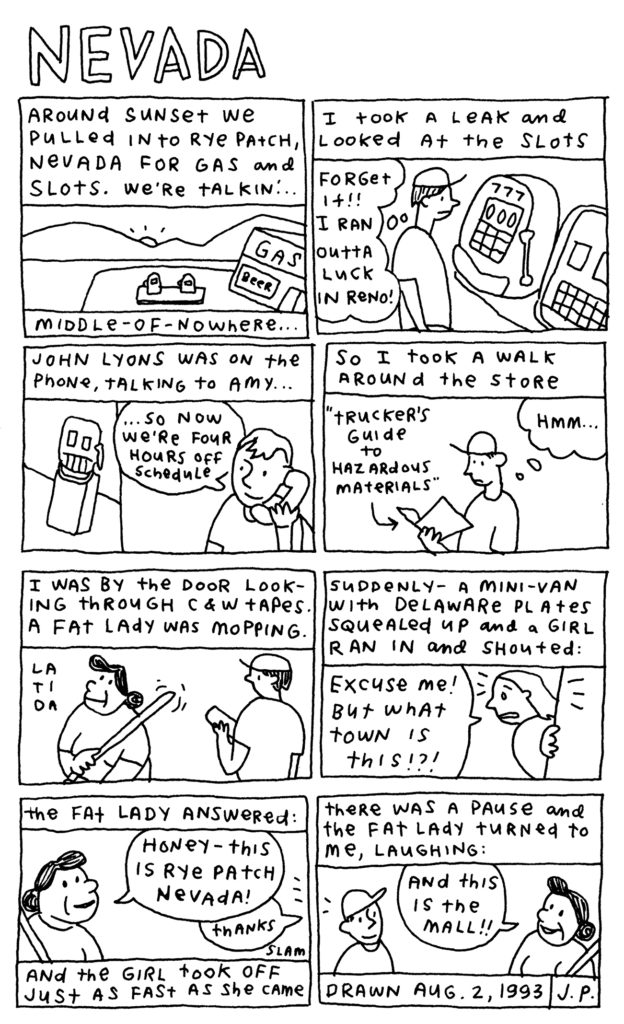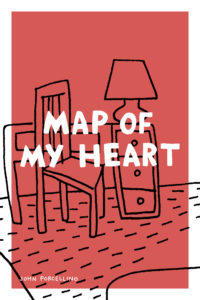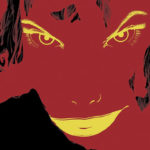
 The year 1989 wasn’t particularly extraordinary for comics. Bookstores dealt mainly with the usual suspects from The X-Men and The Avengers to Batman and the Justice League of America. Into this predictable landscape crept a 21-year-old named John Porcellino, who wanted to create comics but strongly felt the need to publish them himself. King-Cat Comics and Stories was the result, a series of photocopied minicomics that continue to be sold on Porcellino’s website three decades after he began bringing them to life.
The year 1989 wasn’t particularly extraordinary for comics. Bookstores dealt mainly with the usual suspects from The X-Men and The Avengers to Batman and the Justice League of America. Into this predictable landscape crept a 21-year-old named John Porcellino, who wanted to create comics but strongly felt the need to publish them himself. King-Cat Comics and Stories was the result, a series of photocopied minicomics that continue to be sold on Porcellino’s website three decades after he began bringing them to life.
Today, Porcellino’s work is read, studied, and admired by readers and artists from around the world, and three of his collected works have been reissued in fabulous new editions that allow us to appreciate the depth of what he has accomplished. It’s hard to find anything quite like King-Cat in stores even today, not only because what it focuses on is unique but also because Porcellino refuses to follow any rules other than his own.

The reissues—King-Cat Classix, Map of My Heart, and Perfect Example—span the years 1989-1996, 1996-2002, and a single year of Porcellino’s life between high school and college, respectively. Together, they function as the memoir of a man’s search for meaning. This is a life spent questioning every aspect of existence, where no subject—be it dreams, pill bugs, the mysterious lives of felines, or conversations at bars—is deemed unworthy of respect or attention.
The nicest thing about King-Cat is how one can flip open a page at random and come away with something unpredictable. The drawings are deceptively unassuming; the writing pithy. A couple of panels are in Spanish, while others drop readers into dream scenarios without any context. It makes for heady, confusing, challenging, and amusing reading, which is what anyone interested in comics as an artform wants and expects from the best creators.
Porcellino’s uncompromising worldview isn’t always easy to engage with, but it rewards careful reading, which is probably why these reissues never seem dated–even with scripts that were created in the 1980s. This is also the perfect time for them to be introduced to a new generation of readers, because so much of what they focus on reflects the uncertain times we live in. The autobiographical characters who populate Porcellino’s world grapple with emotions that millions of us have been forced to acknowledge in the aftermath of the Covid-19 pandemic. There is adolescent yearning, struggles with isolation, crushing depression, relationships that stretch and break, all played out against a relentless search for something substantial in a world that offers little.

Long-time fans of these strips often cite the honesty that attracts them to it, the seeming lack of filters not just in the bareboned lines but also in the dialogue. There are no taboo subjects here, and nothing is sacred. To dip into these pages is to emerge with an emotional snapshot frozen in his time. It is the kind of work that the best independent cartoonists aspire to create.
An interesting panel in one of the early strips titled “Well Drawn Funnies” has Porcellino addressing the reader directly, putting out what can best be described as an artistic statement. “A lot of people complain about my art,” his character says, “— they tell me I can’t draw, my art is garbage etc. etc. Maybe I can explain … if the world is a piece of shit, art that denies that is, in essence, a lie. It is more important to me to make art that is an honest expression of my life than it is to make pictures people think are well drawn.” And there you have it; a belief he has undeniably refused to stray from.


Map of My Heart and Perfect Example work because they take the quotidian and invest it with importance. There is poignancy not just in the breakdown of a marriage, but also in the despair of youth that seems achingly familiar. The influence of Zen Buddhism on Porcellino is more pronounced in these editions, as he takes those life lessons and applies them to his writing and drawing. He tries to say more while adopting a more minimalistic approach, allowing us to sit back and watch. In the process, these works start to resemble what the Germans call Künstlerromans, or narratives about an artist’s growth to maturity.
I recently spent some time on Porcellino’s website, looking at the latest issue of King-Cat (#80) for sale. It made me smile, because it is proof that this is an artist who has accepted his work as an extension of who he is. King-Cat continues to exist because Porcellino continues to have something to say and continues to use his life as material. It makes for work that is deeply personal, and always powerful. Long may he continue.




